| By Heidi M. Pascual |
| Just like in the Philippines when celebrations and religious feasts are held, Filipino music takes the center stage. The Philippine American Association for Madison and Neighboring Areas (PAMANA) presented its very own local talent, Anna Maria Manalo, when the group celebrated the 108th Philippine Independence Day on July 8 at the Marriott Hotel in Middleton. Aptly titled "Mga Himig Pilipino: Pamana Mula sa Puso" (Filipino Music: A Legacy from the Heart), Manalo awed her audience with her own compositions and/or special arrangements on the violin and the piano. Her father, tenor Felipe Manalo, a medical doctor, joined his daughter in a beautiful number titled "Dinggin Mo Sandali." Then, the stage was opened to youth dance numbers, including the famous "Tinikling," a fast-paced dance that requires skills in footwork and excellent timing and uses two bamboo poles for dance space. Aside from the rich musical entertainment, PAMANA presented awards and recognition certificates to former PAMANA presidents and leaders, namely Agnes Cammer, Joseph Jaucian, Dion Puzon, Tesie Gabay, Ernie Jamanadre, Charlie McAteer, Ray D'Acosta, Rufino Licos, and Al Poliarco. The keynote speech of Dr. Alejandro Vinluan (in absentia due to health reasons), which was read by Princess Emraida Kiram, talked of teaching the Filipino language to Filipino American children. Dr. Vinluan wrote in part: The Filipinos of the 21st century are among the most educated and knowledgeable in our country's history. As a result, we have more than 8 million Filipinos working in almost every country in the world, supplying the brain power that has fueled the workforce and economic development of many countries, probably to the detriment of our own. We come from a long blood line of various races and influences that today it is very difficult to find a pure Filipino. We are now mostly "mestizos," and if we are not careful, we may ultimately lose our Filipino-ness. .... What is sad is not losing the language, but losing the culture and heritage as well. The purists in our communities feel that language is the umbilical cord; to me, "culture" is the link. I have been told numerous times that language itself is the basis of our culture. Our culture includes many aspects, but it is not all inclusive. It includes such things as our folk songs, our legends, our myths, or riddles, even our folk dances. To me, our values and our virtues are the basis of what makes a Filipino. In the spirit of this message, the PAMANA leadership showed that an important historical event such as the Philippine Independence Day deserves to focus on and promote cultural traditions that include "pagtanaw ng utang na loob," (debt of gratitude) to those who have made PAMANA alive and active through the years; "pakikisama," (getting along) to countrymates who seek unity and community; and "paggalang," (respect) to elders and peers by respectful greetings such as "Magandang gabi po, " (Good evening, Sir/Madam), or "Kumusta na po kayo?" (How are you?) |
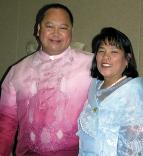
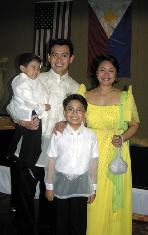
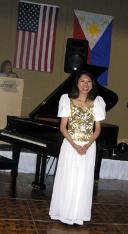
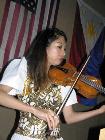
| PAMANA celebrates Philippine Independence Day It's about freedom, culture, and unity |
| Llamas family |
| Anna Maria Manalo |
| Outgoing PAMANA Pres. Beth Reyes (r) and Secretary Al Gutierrez |
| PAMANA Board of Directors |
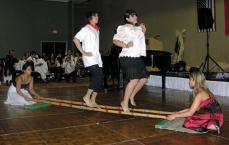
| Past PAMANA presidents and leaders |
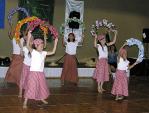
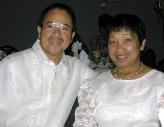
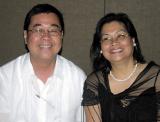
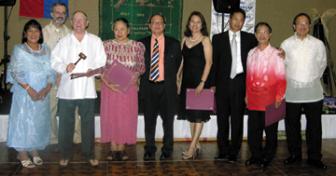
| Mr. & Mrs. Ed Escall |
| Mr. & Mrs. Jun Gonzales |
| Tinikling |